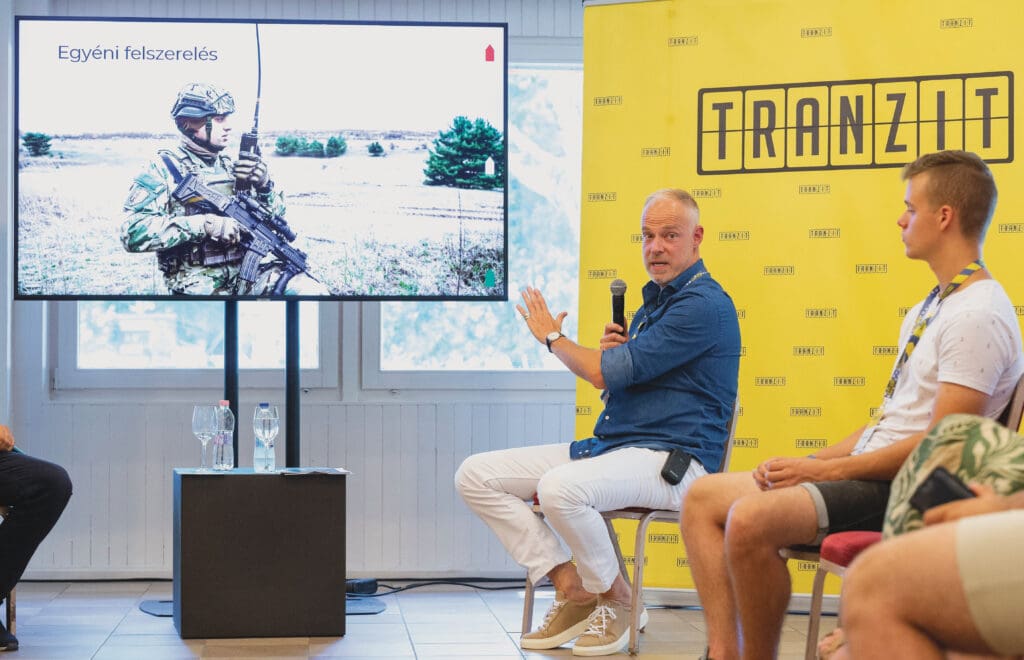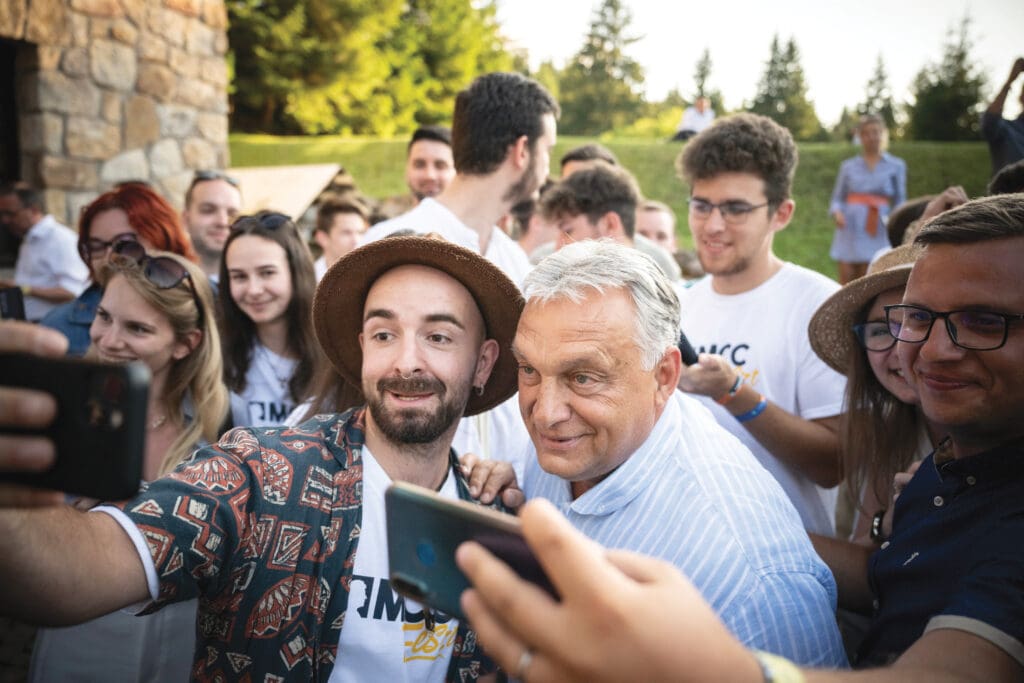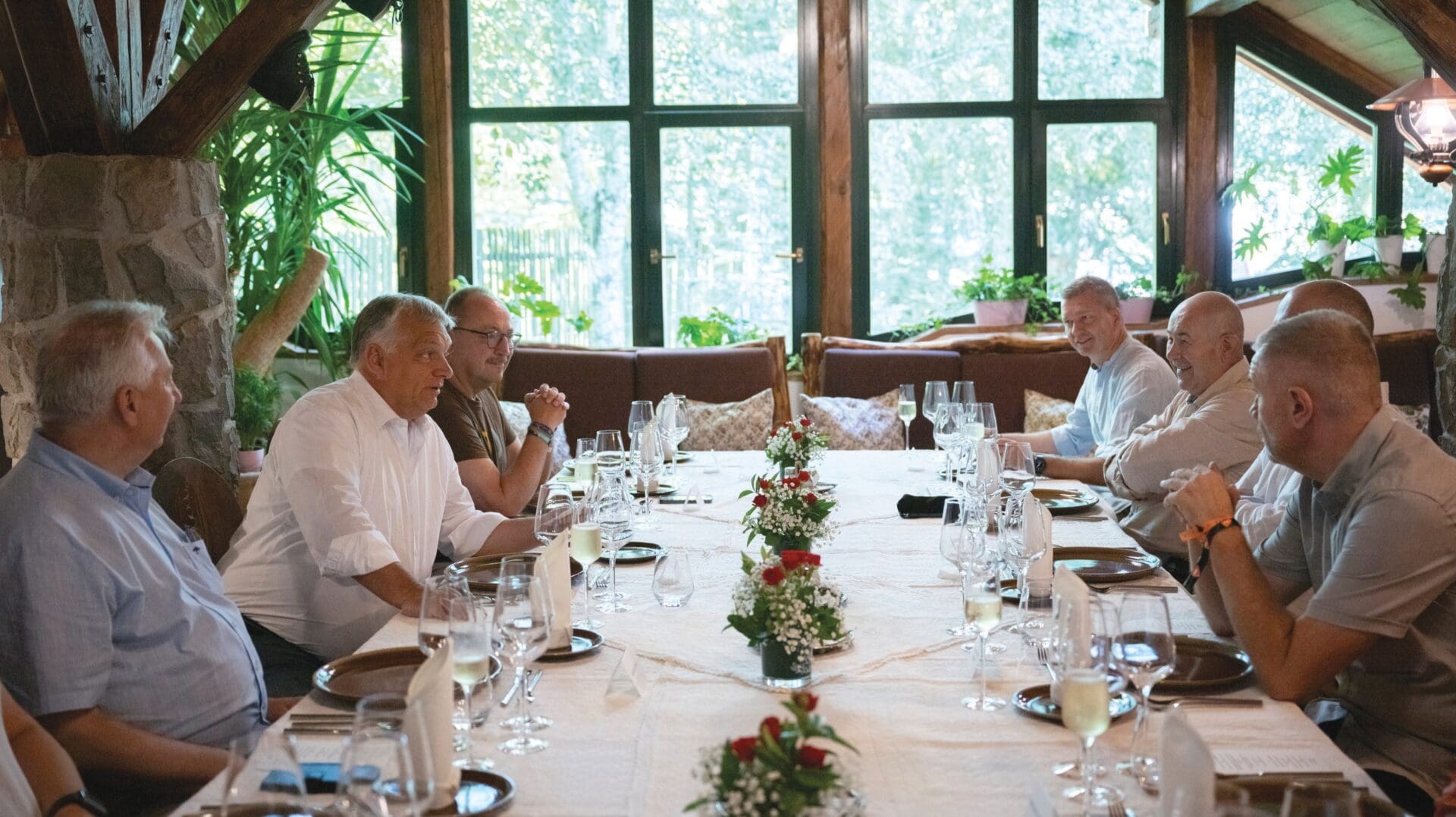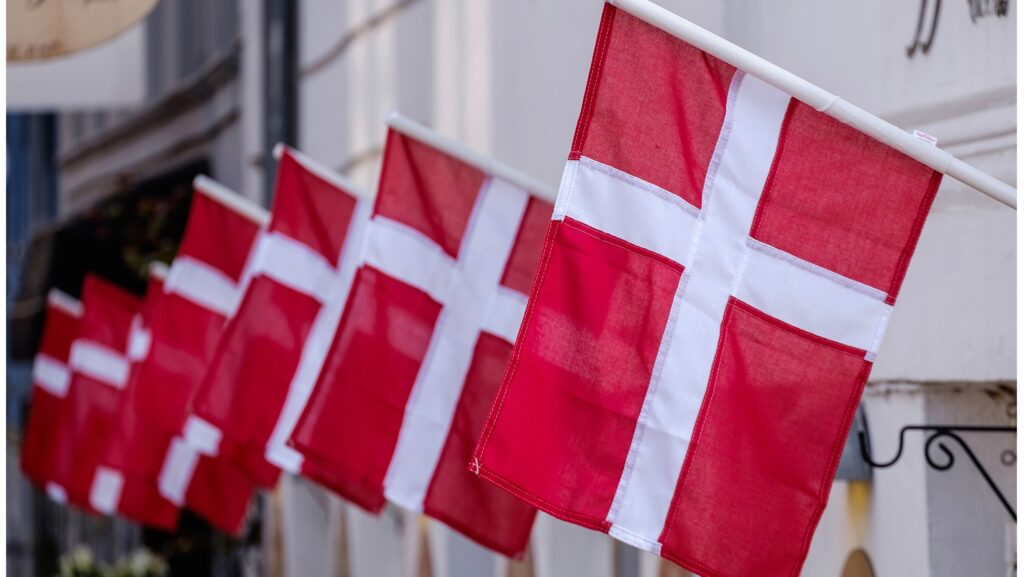This article was published in Vol. 3 No. 3 of the print edition.
Summer festivals where thousands, or even tens of thousands of people gather to listen to lectures and panel discussions on today’s complex, pressing issues may be a rarity elsewhere, but not in Hungary. We have had four of these events in quick succession just this summer. There is something unique about Hungarian conservatism that brings out the masses to engage in such intellectual endeavours, and despite what some critical voices may have you believe, in good-faith debate with the other side as well.
In four locations—Tusnádfürdő, Esztergom, Budapest, and Tihany—within a span of just a month, all four of these spectacular affairs passed off swimmingly without any incident, with plenty of great musical acts to top off the attendees’ festival experience.
The 32nd annual Bálványos Free Summer University and Student Camp, better known colloquially as Tusványos, took place between 18 July and 23 July in Tusnádfürdő (Băile Tușnad), Transylvania, Romania. The festival offered a mixture of very different experiences for a broad mix of attendees. During the day, one could listen to intriguing panel discussions and lectures by members of the high intelligentsia of Hungary, Romania, or even other parts of Europe and the West. In addition, one could relax in a spa retreat, or take a stroll in the vast forest near the town. During the evening, however, a series of rock and folk concerts were on the agenda for visitors to choose from—and, by the nature and the volume of these shows, even those who chose not to attend still got a taste of them as well.
Based on the above, Tusványos may seem like quite a unique event. However, within a week of its conclusion, another event very similar to it kicked off. This one was held in Esztergom, Hungary: MCC Feszt took place there between 27 and 29 July. When it was over, one had to wait less than a month for the start of Tranzit Festival held in the lakeside town of Tihany, on Lake Balaton’s shore, between 24 and 27 August.
Political festivals are not unique to Hungary. The Democracy Festivals Association, for example, holds such events across Europe, from Pori, Finland to Eskişehir, Turkey—but none of them has the wide cultural appeal of Tusványos, MCC Feszt, or Tranzit. A case in point: Democracy Festivals have also put on events in Hungary in the past. However, their ‘Diákfeszt’ (Student Festival) in Budapest failed to garner even a fraction of the attendees that, say, MCC Feszt had.
While political festivals are not unique per se, there is something unique about how the Hungarian right organizes its gatherings. Their continuing success is not due to populist chauvinism, or to making them mere echo chambers. In fact, plenty of world views, including opposition voices highly critical of the Orbán administration, clashed on stage in front of captivated audiences many times this summer. This too is part of the allure of these festivals. Having dissenting voices shut out of these events may seem tempting to some for political reasons, but it would also lead to a much less engaging experience for the attendees. There could be exceptions, though—at MCC Feszt After party in Budapest, leftist political analyst and pollster András Pulai managed to draw an uncomfortable amount of angry jeers and boos out of an otherwise orderly crowd…
Out of the three festivals mentioned above, Tusványos has the longest history. Its very first instalment was held back in 1990. The idea for the event came from British journalist David Campanale, working for the BBC at the time, who had been in constant communication with Fidesz Party members since 1988. Hungary was going through its regime change at the time, and Campanale, along with his fellow members in the youth chapter of the Liberal Democrat Party of the UK, was showing solidarity towards the young activists fighting for democracy in Eastern Europe. One of the issues they paid special attention to was the mistreatment and forced assimilation of ethnic Hungarians in Romania under Nicolae Ceaușescu’s communist regime.
It was this pressing injustice that brought Campanale to Kézdivásárhely (Târgu Secuiesc), Transylvania, Romania, where he, along with Fidesz members Zsolt Németh and Miklós Szabó, and the local Hungarian Young Democratic Association (MADISZ) members László Deme and Attila Sántha—two ethnic Hungarians living in Transylvania—signed a declaration of alliance between British, Hungarian, and Romanian young democrats. In it, they vowed to ‘do everything to do away with the remnants of the Iron Curtain’ in Eastern Europe.
This declaration was signed in December 1989. Its inception came about while the young politicians were dining and drinking together in Transylvania. At the same time, another proposition came up, this time from Campanale himself. Based on his experience at an event called Greenbelt in his home country, he suggested the organization of a similar event with political discussions and hip musical acts. Here is how Campanale recalled the inception of the new Transylvanian festival ahead of its 25th anniversary, in a profile piece for the Hungarian-language Transylvanian news and cultural site ErdélyiNapló.ro:
‘I was inspired by my partaking in a Christian youth festival called Greenbelt in Great Britain, which is held for the 40th time this year [in 2014], and where I first heard U2 play in 1982. The festival is a mixture of discussions about politics and justice from a Christian point of view, but there is plenty of good music and humour too. I think its parallels with Tusványos are evident.’1
Within seven months of the idea being first proposed by Campanale and his company during a night of drinking and merriment, the inaugural Bálványos Free Summer University and Student Camp was successfully held at Bálványosfürdő (Băile Bálványos). It had to move locations due to high demand in 1997. It has been hosted by the town of Tusnádfürdő (Băile Tușnad), which has given it its iconic colloquial name, used ever since.
This takes us to Tusványos 2023. Most media coverage of the event, especially abroad, focused on Prime Minister Viktor Orbán’s speeches there, and usually the most controversial parts of it. Last year, it was his remarks against mass migration and about Hungary not being a ‘mix-raced country’ that drew outrage from the leftist mainstream. Anne Diekhoff in the German newspaper Tageszeitung went so far as to claim that Viktor Orbán had ‘dedicated his life to hindering human progress’.2 This year, it was a lighter storm PM Orbán had to weather. Opposition media mostly took umbrage at the plans he has outlined for the period up to 2030, suggesting that he expects to stay in power for almost a full decade more.
PM Orbán is a frequent speaker at Tusványos, and this is undeniably a notable ‘feature’ of the festival—but it is so much more than just a platform for the prime minister to give an annual summer address. Tusványos is where people from all walks of life, mostly but not exclusively Hungarians, can come together and listen to discussions about public affairs, have fun at a rock concert, or retreat to nature if that is what they feel like doing. From students to rural folks to urban intellectuals, anyone could find themselves sharing a drink with anyone else at Tusnádfürdő. It is a place where ‘social distances are shortened’, as Danube Institute researcher Eric Hendriks said about his experience at this year’s festival. And here is another impressive fact: Zsolt Németh, Hungarian MP and one of the original organizers, is still heavily involved in the festival’s organization after more than three decades. He even gave the opening address at Tusványos 2023.
MCC Feszt has, in comparison, a much shorter history. The first one was held in 2021. As MCC Director General Zoltán Szalai pointed out in his opening address at MCC Feszt 2023, they ‘only’ expected around 2,000–3,000 people to turn up at their inaugural event, and were surprised to see 13,000 actually show up. By 2022, the number of attendees had grown to 30,000, and by 2023, at this year’s instalment of the festival, it surpassed 40,000. All the while, it has continued to be hosted in Esztergom, a pretty town of about 28,165 people in Northern Hungary, near the Slovakian border—which Mayor Ádám Hernádi of Esztergom, a native of the town, expressed his appreciation for in his address to the attendees.
While MCC Feszt lags behind Tusványos in history and longevity, it did outshine it this year with the prominent international guests it managed to book to speak at the event. Popular American political commentator Michael Knowles gave a speech in Esztergom. Meanwhile, former Chancellor of Austria Sebastian Kurz, who distinguished himself by becoming head of state in his home country at the age of 31, had a pleasant conversation on stage with MCC Director Szalai before a packed audience who showed up to listen to them despite the scorching July heat. What is more, a month later, on 22 August in Budapest, world-famous American political pundit Tucker Carlson was the headline speaker at the so-called MCC Feszt After party at Millenáris Park. Just two days later, Carlson released a pre-taped interview with former US President Donald Trump on his X (Twitter) page, which ended up garnering hundreds of millions of views.
‘It is a political culture which inspires tens of thousands of people to turn up at festivals which mostly comprise intellectual discussions about the most pressing issues of our time’
MCC Feszt’s appeal does not stop at attracting political junkies. Many of the musical acts performed were of A-list calibre, though—unlike the guest speakers—they were all Hungarian. Perhaps someday we will have foreign musical acts of international fame in the MCC Feszt line-up. Still, the likes of Follow the Flow, Dzsúdló, VALMAR, and (somewhat surprisingly) the old-timey Hungarian dance-pop singer couple György Korda and Klári Balázs have plenty of pulling power among young people in the country. Thus, at the live shows of these artists in the evenings, a whole new type of crowd came out at MCC Feszt, young men and women who would otherwise hardly have come to Esztergom just to hear Michael Knowles or Sebastian Kurz talk. Still, just to kill time if for nothing else, they may very well have popped in for one of the lectures or panel discussions in the daytime.
Tusványos likewise had some big-name Hungarian musical acts on its slate. Attendees at the Transylvanian festival could treat themselves to the musical stylings of artists such as Quimby, Magna Cum Laude, Republic, Ismerős Arcok, or Parno Graszt (who, incidentally, also did live shows at MCC Feszt and MCC Feszt After).

Tranzit Fesztivál closed the series of major Hungarian political festivals this summer. This is the only one that took place at the primary summer holiday destination for domestic tourists in Hungary, in the Lake Balaton region. More specifically, it was held at Tihany, one of the most important cultural sites in the country. This is where the famous abbey stands, with perhaps the even more famous first-ever Hungarian words recorded in writing, about the military road leading to Fehérvár written in its Deed of Foundation (‘feheruuaru rea meneh hodu utu rea’, as most secondary school students in Hungary can hopefully recite). Those words were written in 1055. Nearly a millennium later, Tihany became a centre of attention of Hungarian public affairs for a brief four-day period between 24 and 27 August, when prominent figures in domestic politics gathered to entertain the audiences with their discussions.
While Tranzit is often dubbed ‘just another right-wing political fest’ by some, having been organized by the conservative Kommentár (Commentary) Foundation, the line-up of panellists included plenty of opposition figures as well. That was despite the fact that the largest out-of-power party, the Democratic Coalition (DK), decided to boycott the event, calling it ‘a Fidesz Party convention’. Still, we got to see MP Márton Tompos from the progressive-liberal Momentum Party debate Fidesz MEP Balázs Hidvéghi; László György Lukács from the opposition right-wing party Jobbik clash ideas with Fidesz State Secretary Bence Rétvári; and, at the panel with the most prominent participants, Minister of the Prime Minister’s Office Gergely Gulyás sat down with the candidate for the united opposition in 2022, Hódmezővásárhely mayor Péter Márki-Zay to engage in another intriguing battle of ideas. All these conversations took place in a scenic setting, with ferries going back and forth in the background on the waves of Lake Balaton, as if to serve as a metaphor for the different ideas bouncing back and forth on stage, in the foreground.
This year, Prime Minister Viktor Orbán also made an appearance at Tranzit Fesztivál. Unlike at Tusványos, he is not a regular feature there, having last spoken at the event over a decade ago, in 2012. This time, he sat down with political commentator Dániel Bohár. During the discussion, Orbán also outlined Hungary’s crucial role in preserving and shaping conservative thought on the international political scene, indirectly also emphasizing the importance of funding such events as Tusványos, MCC Feszt, or Tranzit, and, even more so, the funding of the right-wing foundations who delegate speakers to these events or are involved in their organization.

‘In defining political topics in an attractive, mediated way, in creating the linguistic framework, the liberal-democrat forces are still way ahead of us internationally, while the conservative-democrat forces are lagging behind. This is the disadvantage we have to cope with. The problem is, however, that the other side has a massive force advantage. A solid conservative majority is exclusively in Hungary. And we need a massive grassroots foundation to maintain that: a large number of people who think and write, universities where they teach, foundations where they philosophize.’3
There is no question that the organizers behind these prominent political festivals are right-leaning, conservative groups. The domestic dissenters, such as DK with their boycott of Tranzit Fesztivál, certainly got that much right about their criticism of these events—however, dismissing them solely on this basis is more of an indictment of their own oversimplified worldview than the events themselves.
Plenty of major opposition voices were welcome at all three summer political festivals, and they were completely free to speak their minds. They could do so without fear of ‘cancellation’, fear of losing their positions, or having their social media accounts restricted or banned. All of these things happen to conservative voices on a regular basis in Western countries such as the United States or Canada. In Hungary, however, the liberal minority faces no such dangers.
Some opposition publications, such as 24.hu, reporting on DK members refraining from participating in debates at Tranzit, have decried the ‘injustice’ afflicting opposition figures who had to speak publicly in front of a majority right-wing crowd. First of all, people of this opinion should consider that, based on the last few election results, the political leanings of the audiences at Tusványos, MCC Feszt, or Tranzit may not be far off of an accurate representation of the national electorate. Furthermore, they should have the awareness to show at least a little bit of appreciation for the political culture conservatives have espoused in Hungary. It is a political culture which inspires tens of thousands of people to turn up at festivals which mostly comprise intellectual discussions about the most pressing issues of our time; festivals where people of all ages, social classes, and political orientations can come together to share a pleasant summer experience, listening either to a concert or to a panel discussion.
NOTES
1 ‘Greenbelt, ahonnan Tusványos is merített’ (Greendbelt That Inspired Tusványos Too), ErdélyiNapló.ro (July 29 2014), https://erdelyinaplo.ro/ szabadido/greenbelt-ahonnan-tusvanyos-is-meritett.
2 Anne Diekhoff, ‘Orbáns Rede in Rumänien: Unerträgliches Salbadern’, Tageszeitung (24 July 2022), https://taz.de/Orbans-Rede-in- Rumaenien/!5867061/.
3 ‘Orbán Viktor. Tranzit 2023.08.25. Tihany (Teljes adás)’, [Entire speech], YouTube (25 August 2023), www.youtube.com/watch?v=Ke5I1f4C30g.
Related articles:








